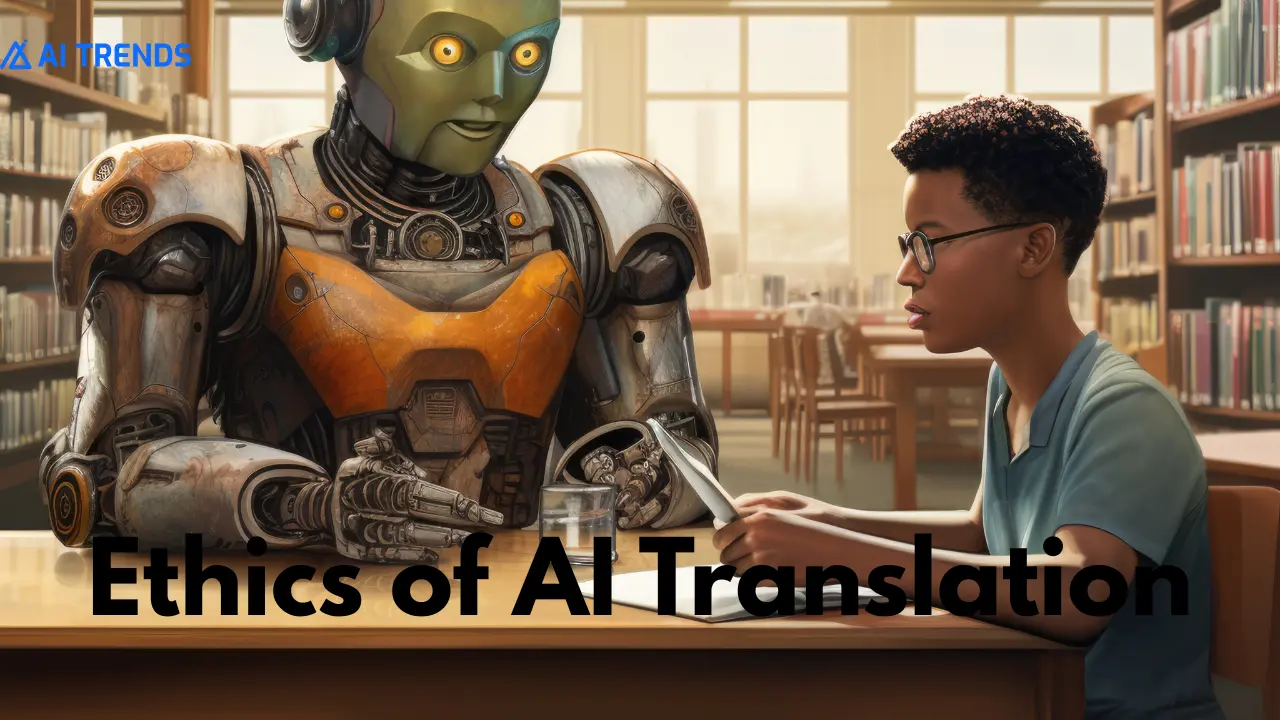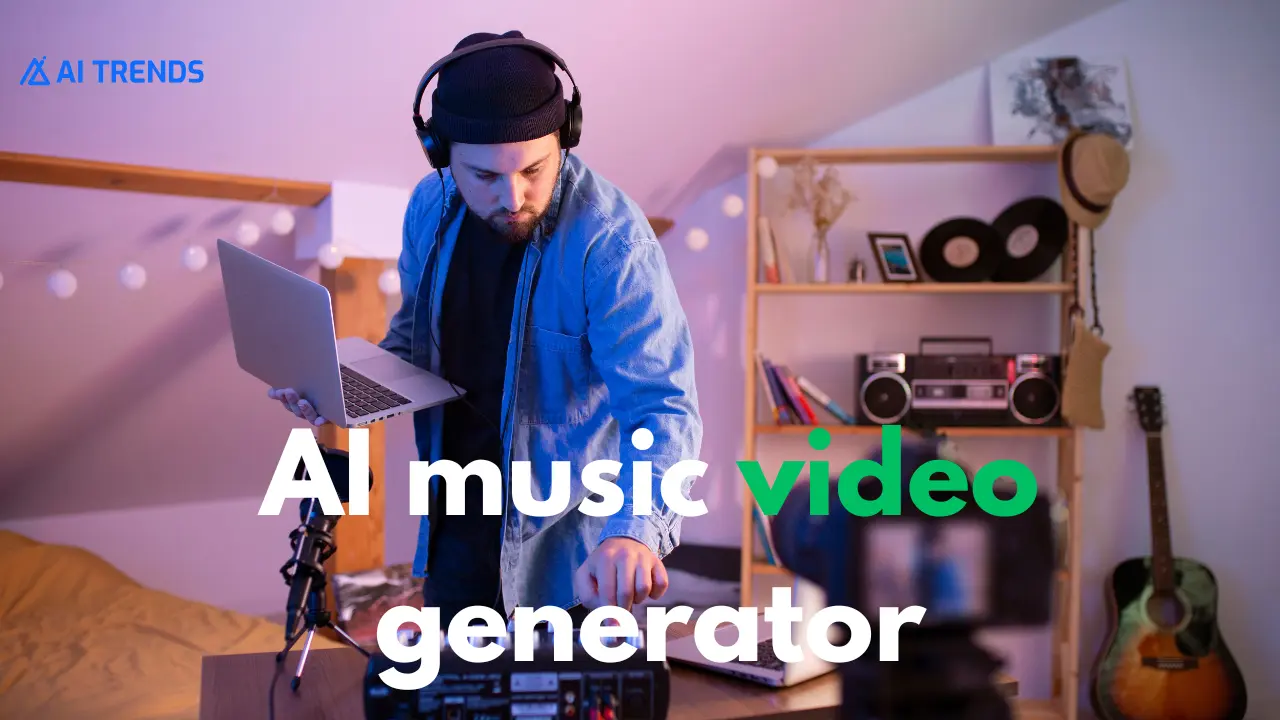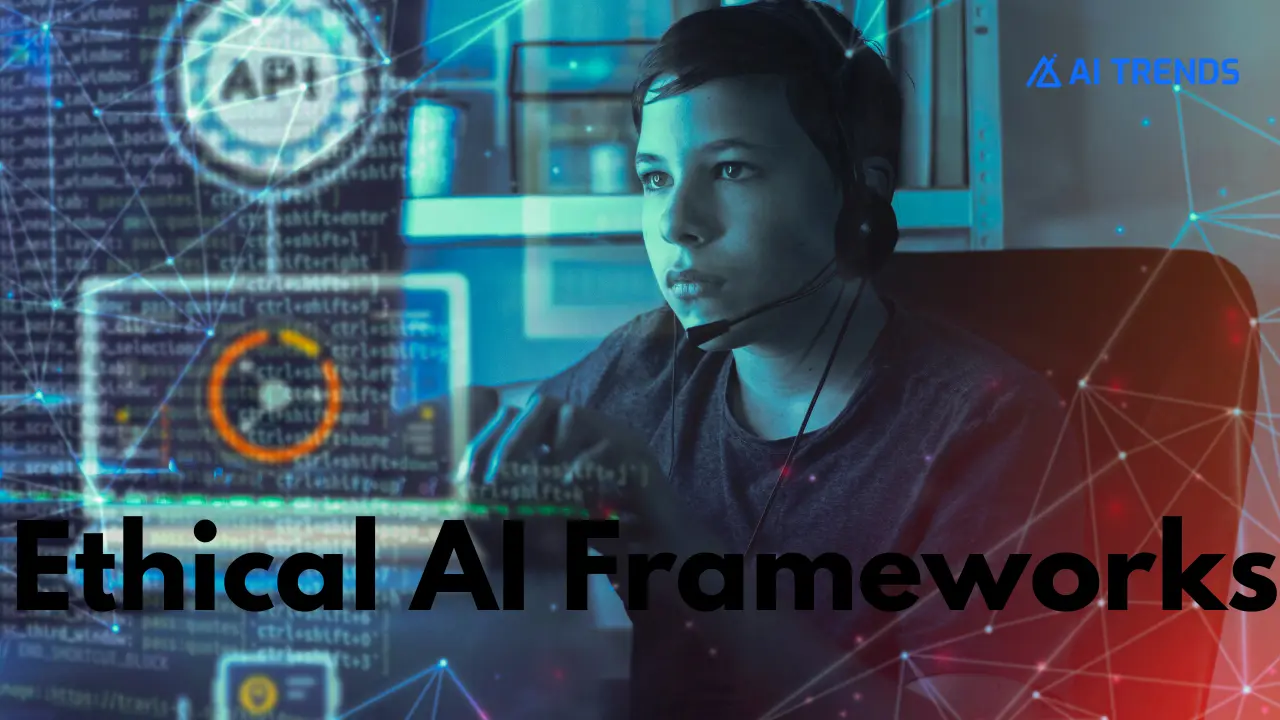Table of Contents
Artificial Intelligence has made translation faster and more accessible than ever. With tools like Google Translate DeepL and Microsoft Translator, you can turn text from one language into another in seconds. Sounds amazing right? But here’s the deal: AI translation is not just about speed and convenience. It raises serious ethical questions.
Let’s break it down together.
Why Ethics in AI Translation Matters
Think about this. You type a message in English and ask an AI to translate it into Arabic. You trust the result to be accurate. But what if the AI misses cultural context, injects bias, or mistranslates a sensitive phrase? That small error could hurt trust, spread misinformation, or even insult someone. AI translation isn’t neutral. It depends on data, algorithms, and design choices. And those come with ethical implications.
Here are the main reasons why ethics matter in AI translation:
- Bias in AI translation: AI can mirror human prejudice if trained on biased data.
- Fairness in language AI: Some languages get better support than others.
- Cultural sensitivity in translation. Words aren’t just words; they carry traditions, emotions, and social meaning.
- Transparency in AI translation: People deserve to know how these systems work and their limits.
- Human vs machine translation ethics Is it fair to replace professional translators?
The Big Ethical Challenges in AI Translation

1. Bias in AI Translation
Bias is one of the most talked-about issues in AI. If training data contains stereotypes, the AI will reflect them.
Example:
- Translating a doctor from Turkish to English often defaults to he, while a nurse defaults to she. This isn’t neutral; it reinforces gender stereotypes.
This is called AI bias, and it affects trust. When you use a translation tool for business, medical, or legal work, even small biases can create big problems.
2. Fairness and Language Coverage
Here’s the truth: not all languages get equal attention. AI translation tools are great at English, Spanish, and French. But they often struggle with African, Indigenous, or regional languages. This creates linguistic inequity, a fancy way of saying some voices matter less online. If your language isn’t supported, your community risks being left out of global conversations.
3. Cultural Sensitivity
AI is good at matching words, but it’s not so good at reading the room.
For example:
- The phrase break a leg in English means good luck. But if AI translates it literally into another language, it may sound violent or offensive.
That’s why cultural context preservation is a must. Without it, translations lose meaning and sometimes even cause harm.
4. Accuracy vs Accountability
AI translation is fast. But speed can’t replace semantic accuracy (making sure the meaning stays intact). The issue is accountability. Who’s responsible if a mistranslation leads to harm? The AI company? The user? Or no one? Right now, accountability in AI translation is fuzzy.
5. Privacy and Data Use
AI tools often process your text through servers. That means sensitive info like medical notes or legal files could be stored, logged, or even shared. This raises questions about data privacy in AI translation. If you’re translating confidential material, you need to know where your words are going.
AI Translation vs Human Translation: The Ethical Angle
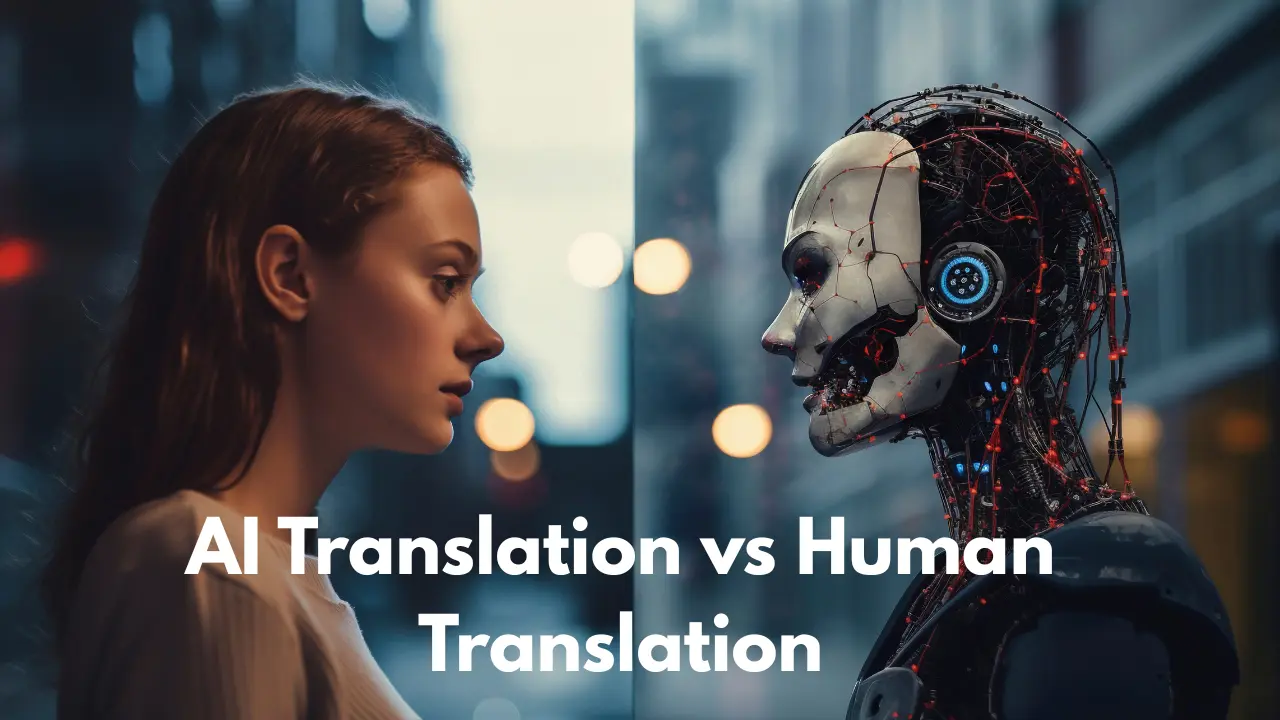
Here’s a question people often ask: Should we rely only on AI for translation?
Pros of AI translation:
- Fast and cheap
- Easy to access (apps, Chrome extensions, mobile)
- Works well for simple texts
Cons of AI translation:
- Misses cultural nuance
- Can be biased or inaccurate
- No accountability when mistakes happen
On the other hand, human translators:
- Understand cultural context
- Can take responsibility for mistakes
- Offer better accuracy for legal, medical, or sensitive texts
The best path? A mix of both. Use AI for casual needs (like travel or social chats), but rely on humans for critical cases.
Real-Life Examples
- Business risk: A company used AI to translate product manuals. Customers got confused, and one misinterpretation even caused a safety issue.
- Cultural offence: A tourism board used AI for ads. The translation ended up insulting local traditions, hurting their brand.
- Medical harm: Patients have reported cases where AI mistranslations led to incorrect instructions.
These examples prove why human oversight in AI translation is crucial.
My Take (Personal Opinion)
I use AI translation tools a lot, especially for quick checks or casual chats. But I don’t trust them for important work. If I were sending a business proposal or translating medical advice, I’d always get a human involved.
Here’s my rule:
- AI for speed, humans for trust.
The Role of Responsible AI in Translation
If we want AI translation to be truly helpful, developers need to follow ethical AI principles. That means:
- Building fair algorithms that don’t favour one gender, group, or culture.
- Supporting more languages for linguistic equity.
- Being transparent about accuracy rates and risks.
- Offering clear policies on data privacy.
This is called responsible language technology. It puts people first, not just speed or profits.
Free vs Paid AI Translation: Is There an Ethical Difference?
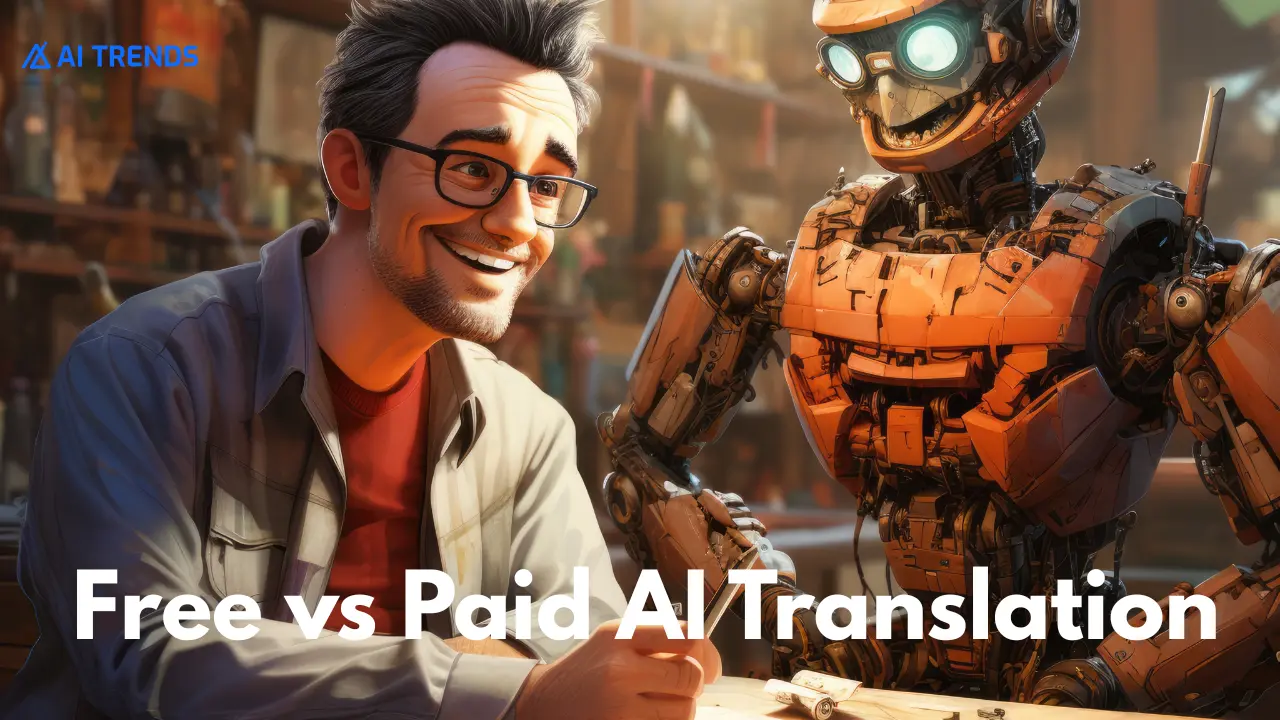
You’ve probably noticed this: free tools like Google Translate are easy to use but limited. Paid tools like DeepL Pro or Microsoft Translator for Business claim to be more secure and accurate.
Free tools:
- Great for casual use
- Easy to access on the web, Chrome, and mobile
- But they may log your data
Paid tools:
- Often includes privacy protections
- Higher accuracy
- Better for business or professional use
So if you’re dealing with sensitive material, a paid platform might be the more ethical choice.
FAQs About Ethics of AI Translation
1. Is AI translation always biased?
Not always. But bias is a risk if the AI trains on biased data.
2. Can AI replace human translators?
For casual needs, yes. For critical tasks, no. Humans are still needed for nuance and accountability.
3. Is it safe to translate sensitive data with AI tools?
Free tools may log your data. For sensitive work, use paid tools with clear privacy policies.
4. Which AI translator is the most ethical?
It depends. DeepL, Microsoft, and Google all have pros and cons. Look at accuracy, privacy, and fairness.
5. What’s the future of AI translation ethics?
Expect better bias control, more transparency, and stronger privacy protection. But human oversight will remain essential.
Quick Takeaways
- Ethical AI translation isn’t just about accuracy it’s about fairness, privacy, and respect for culture.
- Bias, accountability, and inclusivity are the biggest issues right now.
- AI + humans together is the best solution for ethical translation.
- Always check if the tool you’re using respects data privacy.
Final Thoughts
AI translation is here to stay. It’s fast, powerful, and helpful in many ways. But without careful attention to ethics, it risks spreading bias, ignoring culture, and misrepresenting meaning.





